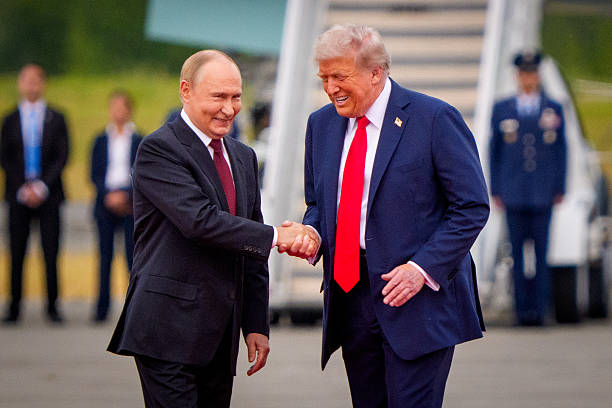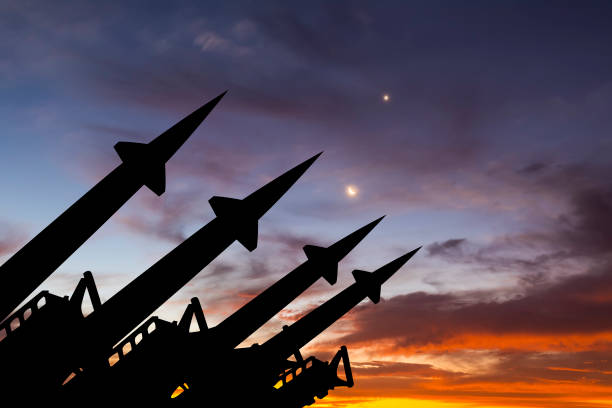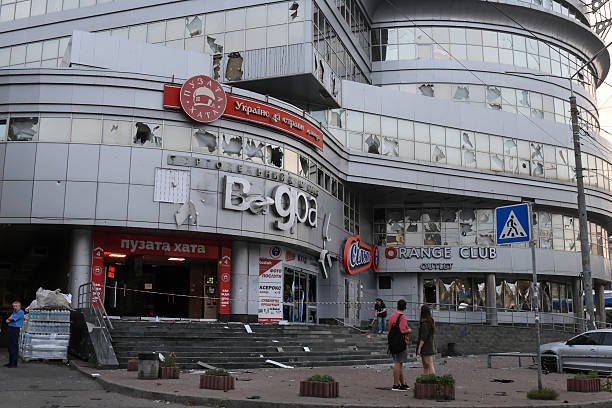
Trump keeps focus on Ukraine as Israel escalates war in Gaza-TheHill.com


President Trump is keeping his foreign policy focus on Russia and Ukraine as global outrage grows over Israel’s plans to launch a major new offensive in the Gaza Strip and a declaration of famine on Friday that underscored the catastrophic suffering of Palestinians.
Trump has backed Israeli Prime Minister Benjamin Netanyahu’s decision to launch a major offensive to take over the strip’s capital, Gaza City, even as he had earlier expressed concern over “starving” Palestinians and discussed the U.S. taking control of the main food distribution effort.
Aid groups are pleading with the U.S. to exercise its influence to help alleviate the humanitarian crisis, where more than half a million people face starvation. And Israelis advocating for a ceasefire deal to secure the release of at least 20 living and 30 deceased hostages are begging for Trump to turn his attention to the Middle East.
“You have spoken powerfully about ending wars and bringing peace. As you work to resolve the conflict in Ukraine, we pray you will apply that same determination to end this nightmare in Gaza,” the Hostages and Missing Families Forum, which represents many families of captives in Gaza, wrote an open letter to Trump this week.
But Trump’s top envoy for peace, Steve Witkoff, has not signaled a return to talks that he left in late July, saying at the time that Hamas is the obstacle to peace.
The White House did not return a request for comment on the current level of U.S. involvement in the ceasefire talks.
Witkoff, currently tasked with settling Russia’s war in Ukraine, is “spread far too thin,” said Daniel Shapiro, distinguished fellow with the Atlantic Council’s Scowcroft Middle East Security Initiative.
Shapiro, who also served as U.S. ambassador to Israel under former President Obama, said that Trump needs to appoint a full-time senior envoy specifically to deal with the Israel-Hamas war.
“If an all-out Israeli assault on Gaza City can be averted with a ceasefire and hostage deal, it will take intense U.S. diplomacy,” he said.
Trump succeeded in getting a ceasefire deal over the finish line in January, but it fell apart after two months. It provided for the release of dozens of hostages and a desperately needed reprieve for suffering Palestinians.
“But since then, he has contributed significantly to the worsening of the war, and he has missed opportunities to hasten its end,” Shapiro wrote in an article for the Atlantic Council.
Trump’s quip about building a “Riviera of the Middle East” in Gaza emboldened far-right members of Netanyahu’s coalition to argue for Israel taking over the Gaza Strip, Shapiro said. And Trump held back criticism on Israel’s decision in March to impose a food blockade.
“He failed to use the momentum of successful Israeli and US strikes on Iran’s nuclear program as a pathway to declare victory,” Shapiro continued. “And now, he expresses no concern over an ill-founded and, many fear, ill-fated expanded Israeli military campaign. He has seemingly endorsed it.”
Trump on Friday said that not all Israelis want a ceasefire and hostage deal and suggested that a swift Israeli military option might be the best way to save surviving hostages.
“The situation has to end. It’s extortion, and it has to end, and we’ll see what happens. I actually think they’re safer in many ways, if you went in and you really went in fast, and you did it,” he told reporters in the Oval Office.
In a Truth Social post on Monday, Trump said, “We will only see the return of the remaining hostages when Hamas is confronted and destroyed!!!… Play to WIN, or don’t play at all!”
Asked about his efforts to end the war in Ukraine, Trump said he’d decide in two weeks how to proceed with his push for peace.
Secretary of Defense Pete Hegseth last met with his Israeli counterpart on July 18, the Pentagon said Friday, affirming the U.S. “will continue to enable Israel’s ability to defend itself as part of President Trump’s mission to achieve Peace Through Strength.”
With the declaration of famine in Gaza Governorate on Friday, by the Integrated Food Security Phase Classification (IPC), humanitarian experts are urging U.S. intervention to push off Netanyahu’s planned offensive in the area.
“The United States, Israel’s closest ally, also bears direct responsibility for failing to utilize its diplomatic and military leverage to demand an unconditional surge of humanitarian aid,” Jeremy Konyndyk, President of Refugees International, said in a statement.
The IPC warned that famine will spread into the southern parts of the strip by September.
Israel has rejected the IPC’s finding of famine, claiming the body “forged” its findings.
There’s still time for a ceasefire deal to take place, said Seth Frantzman, a Jerusalem-based adjunct fellow with the Foundation for Defense of Democracies, a Washington D.C. think tank.
But he said Netanyahu has repeatedly changed his goal posts for a deal.
“It does appear that Israel’s leadership doesn’t want to agree to a deal that ends the war. And Hamas basically says, we want guarantees from the Trump administration that if the Israelis agree to a partial deal, that they also will stop the war. That’s where there’s an impasse,” he said.
Hamas reportedly accepted this week an Egyptian-proposed ceasefire deal, which mediators tout is nearly identical to a proposal offered by Witkoff in May. That includes a two-month pause in fighting and the release of 10 living hostages, in exchange for the release of a number of Palestinian prisoners in Israeli jails – including some with life sentences – and follow-on negotiations to end the war.
Netanyahu’s most explicit terms include for all hostages to be released at once, the disarmament of Hamas and abdication of governing, the establishment of Israeli security control over the Gaza Strip and an alternative civilian government that does not include Hamas nor the Palestinian Authority, which governs the West Bank.
While Israeli officials are reportedly still looking at the deal Hamas accepted, Netanyahu has not signaled backing off the offensive on Gaza City, calling up approximately 60,000 Israeli troops for the massive military undertaking and with no clear end state.
“I came to approve the IDF’s [Israel Defense Forces] plans to take control of Gaza City and defeat Hamas,” Netanyahu said in a video message released Thursday, outside the headquarters of the IDF’s Gaza Division.
“At the same time, I instructed that immediate negotiations begin for the release of all our hostages and for ending the war under conditions acceptable to Israel.”
Frantzman, who authored “The October 7 War: Israel’s Battle for Security in Gaza,” is critical of the decision to launch an operation to take Gaza City. He questioned why such a move had not been proposed earlier if it was really a “magic wand” to end the war.
Moving forward on the military operation presents a whole new set of challenges, Frantzman added. Israel is facing a manpower issue. The 60,000 reservist troops being called up are exhausted soldiers who have already done multiple rotations over 22 months of war, with forces facing attrition, burnout, and disillusionment.
And Gaza City is a huge urban area – the main city, suburbs, and a collection of dense, overpopulated refugee camps that are Hamas strongholds. He said the IDF will call for evacuation of civilians before launching combat operations, but that Hamas will likely blend in with that group and sit in wait.
“Hamas appears to just leave when the civilians leave. And then Hamas waits, and Hamas comes back, and that is a challenge for the IDF,” he said.